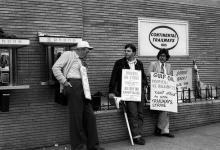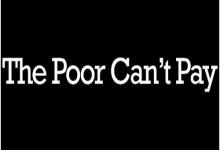Big Brother is watching… (and may be restricting your activities)
The run-up to the visit of Elizabeth Windsor to Ireland has seen the Gardaí requesting personal data from people who both live and work on the way she'll wend through Dublin's streets; announce restrictions on movement through those streets; and the City Council bring a postering ban into force (the postering ban doesn't apply to commercial advertising on billboards, obviously). Meanwhile Apple have been criticised for collecting data on iPhone users' movements, and the EU wants your credit card number.










